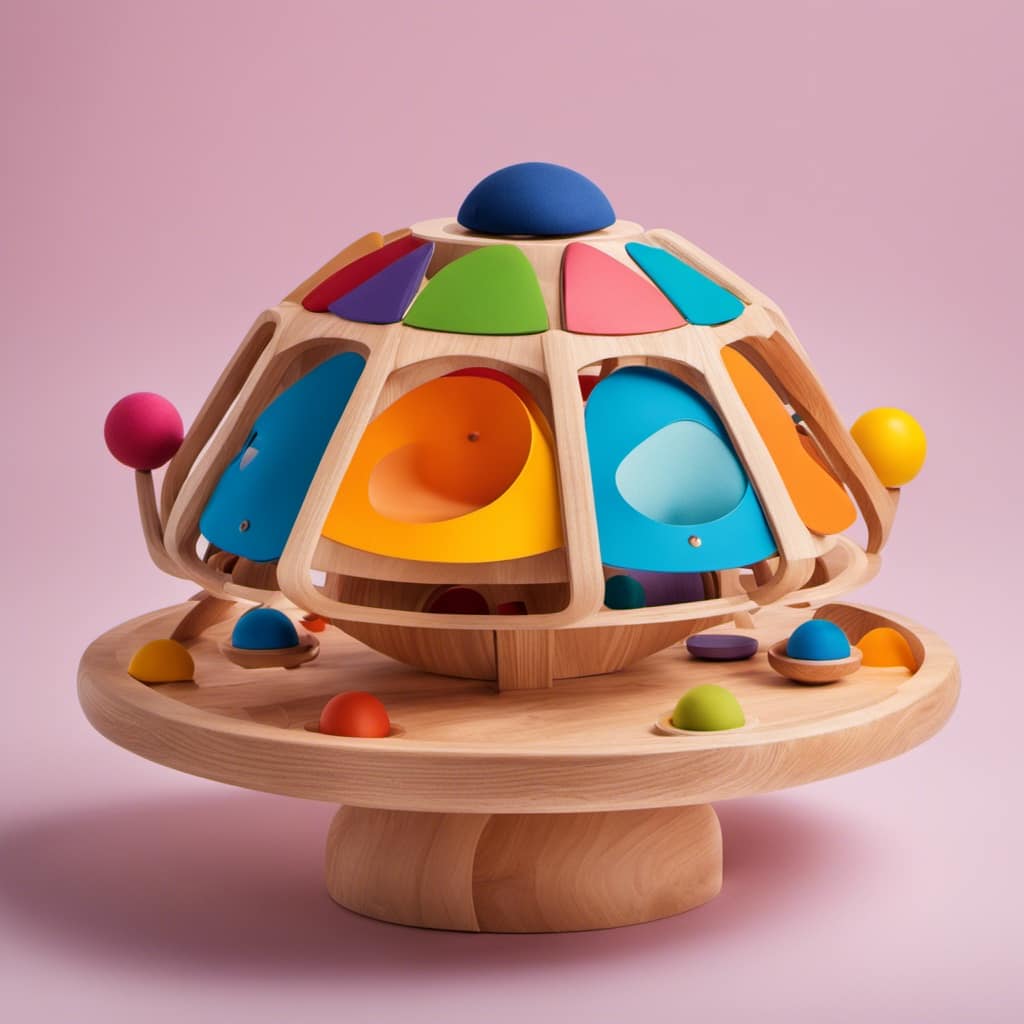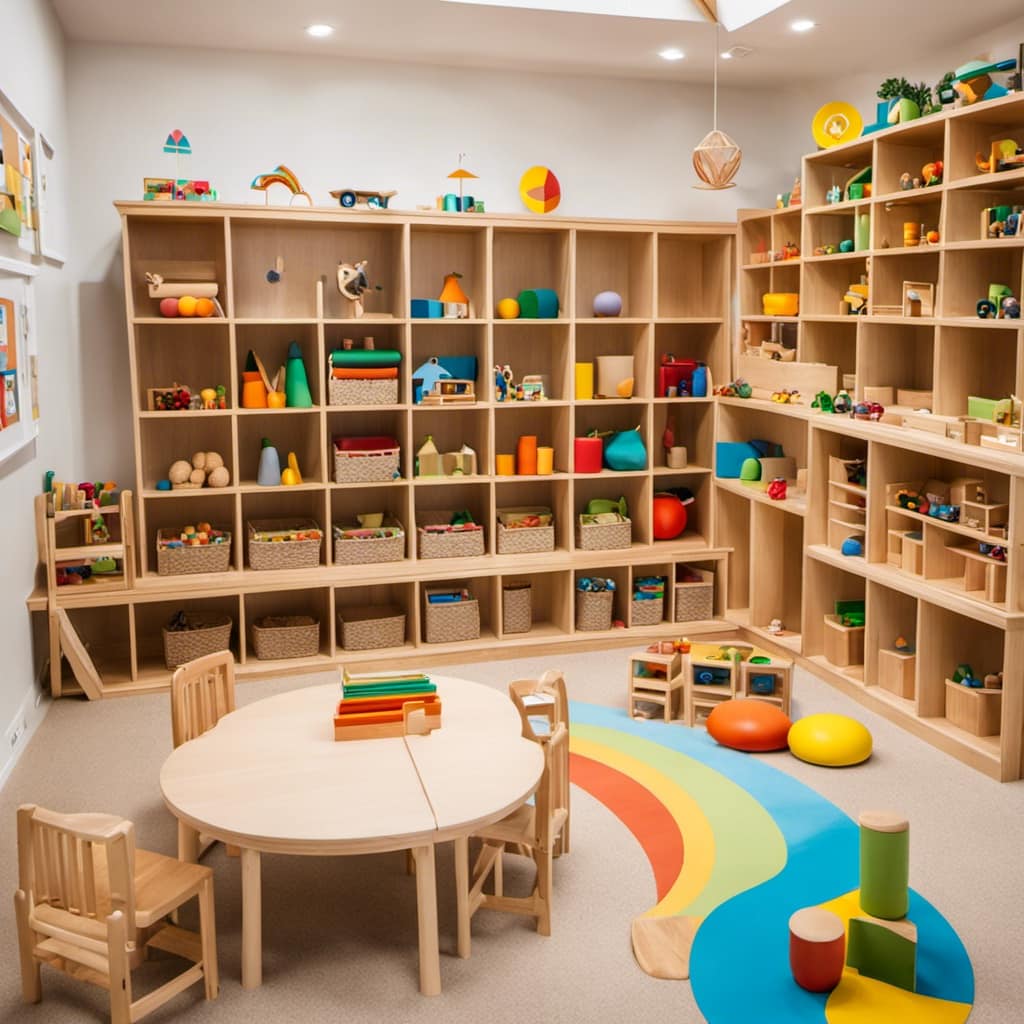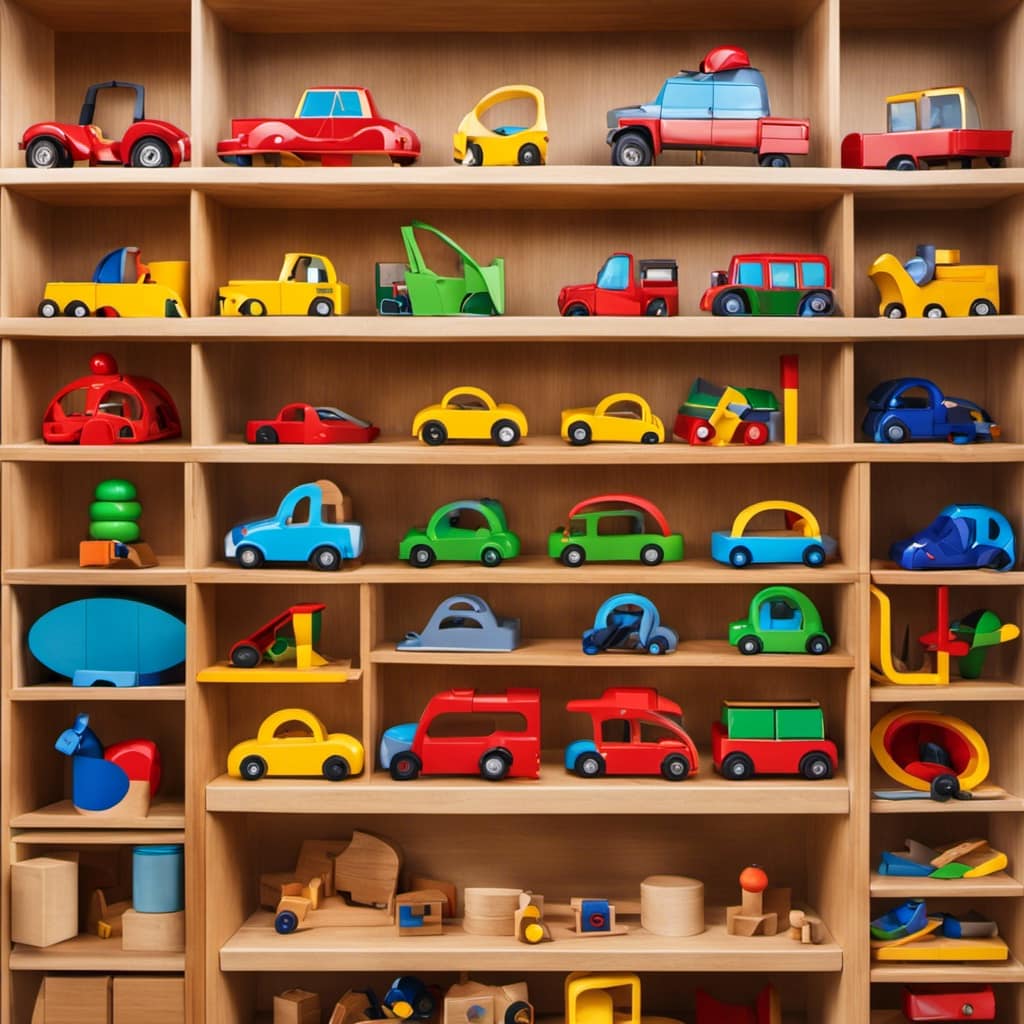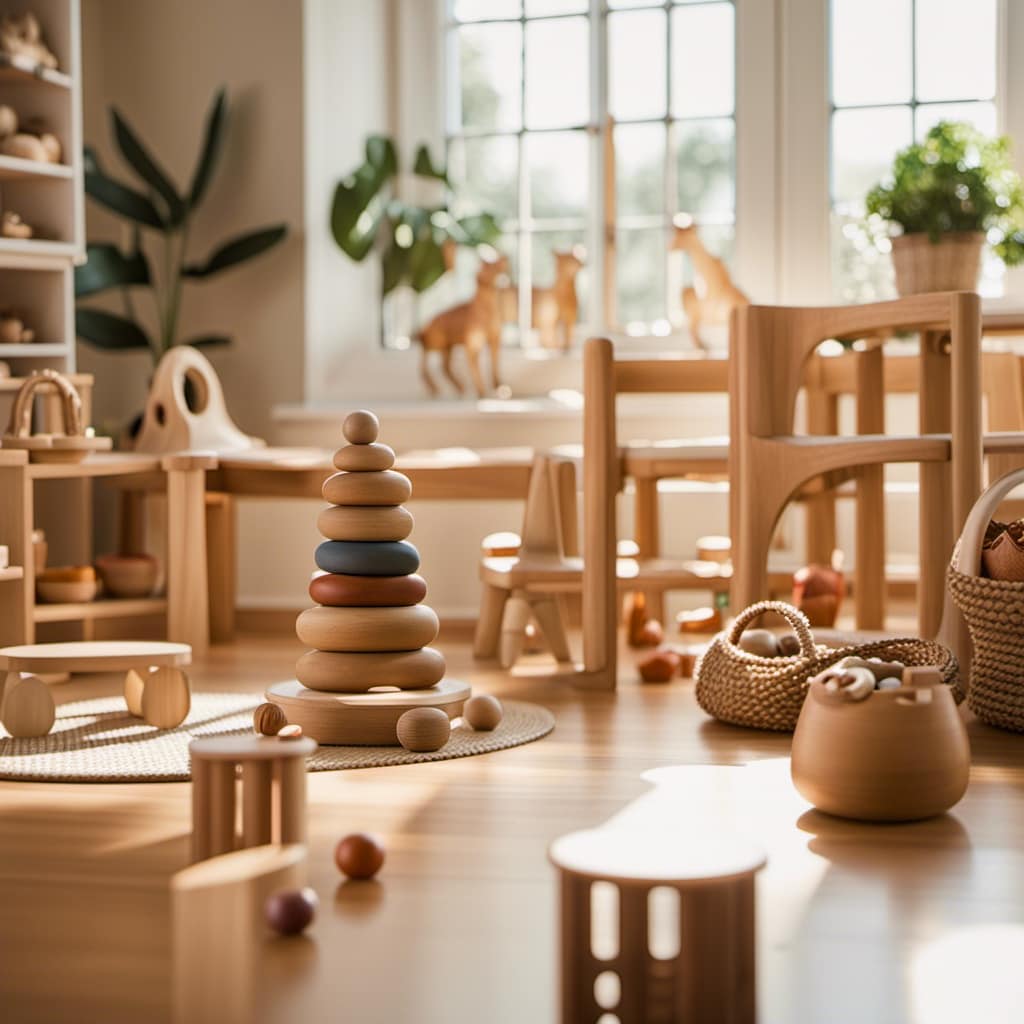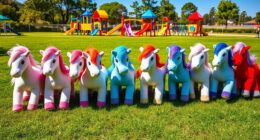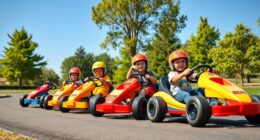As parents, our continuous goal is to discover techniques that support and promote the growth and advancement of our children. Along the way, educational toys have become a valuable resource brimming with learning possibilities.
These toys engage young minds, fostering cognitive development, enhancing motor skills, and igniting imagination and creativity. They also promote problem-solving skills and nurture social and emotional development.
In this article, we explore why educational toys are essential for our children’s holistic development, providing them with the tools they need to thrive in an ever-changing world.
Key Takeaways
- Educational toys promote cognitive development, including critical thinking, problem-solving skills, and memory retention abilities.
- These toys enhance motor skills by improving hand-eye coordination and fine motor skills.
- Playing with educational toys boosts imagination and creativity, allowing children to explore and express themselves.
- Educational toys also contribute to the development of social and emotional skills, fostering empathy, communication, and friendship.
Cognitive Development
In this article, we’ll explore how educational toys actively promote and enhance cognitive development in children.
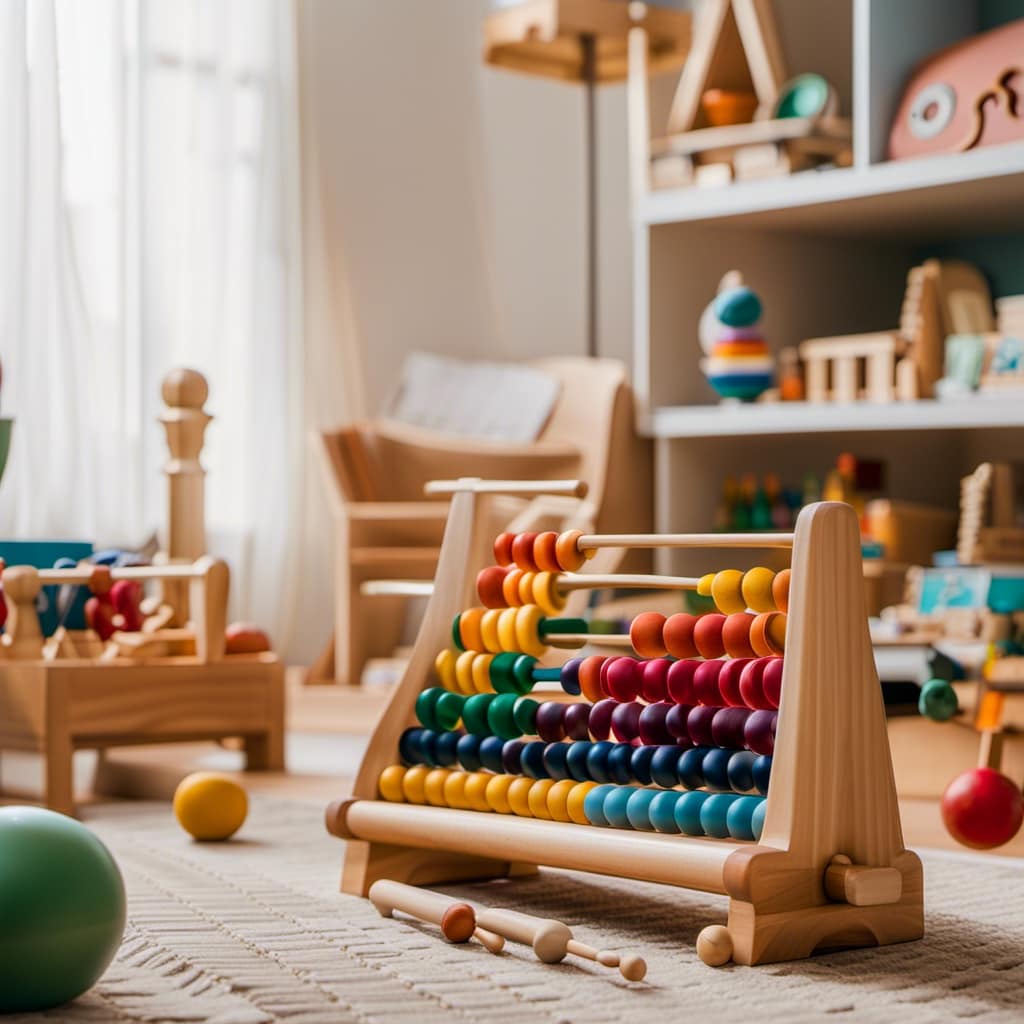
One key aspect of cognitive development is cognitive flexibility, which refers to the ability to switch between different thoughts and tasks. Educational toys, such as puzzles and building blocks, provide opportunities for children to practice and improve their cognitive flexibility.
These toys require children to think critically, problem-solve, and adapt to changing circumstances. By engaging in these activities, children develop their ability to think creatively and find alternative solutions.
Another important aspect of cognitive development is memory retention. Educational toys that involve memory games, like matching cards, can help children improve their memory skills. These games require children to remember and recall information, strengthening their memory retention abilities.
Motor Skills Enhancement
Our children’s motor skills are enhanced through the use of educational toys. These toys provide opportunities for children to develop their hand-eye coordination and fine motor skills.
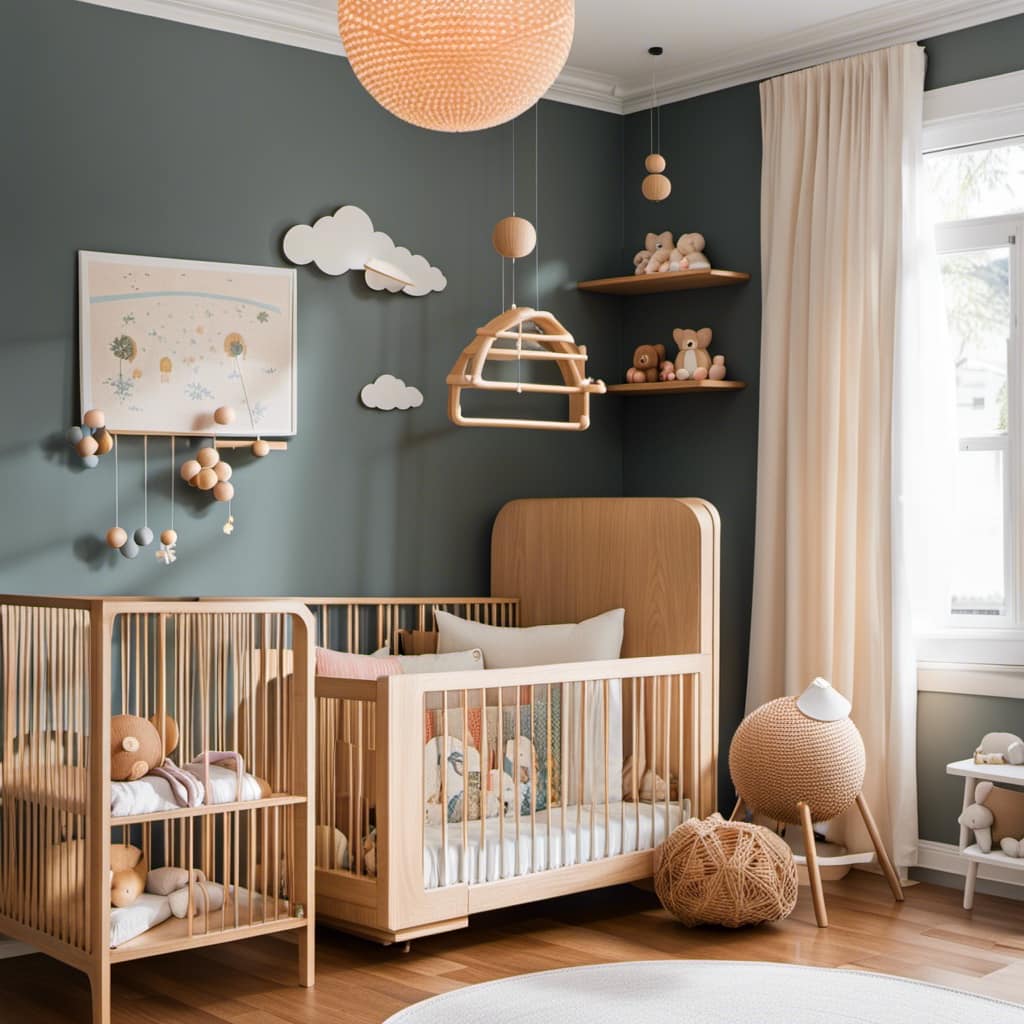
Hand-eye coordination is the ability to coordinate the movements of the hands and eyes together, which is crucial for tasks like writing, drawing, and playing sports. Educational toys that require children to manipulate objects, such as building blocks or puzzles, help improve their hand-eye coordination as they learn to grasp, manipulate, and place objects accurately.
Fine motor skills development is another important aspect of motor skills enhancement. Fine motor skills involve the use of small muscles, like those in the fingers and hands, to perform precise movements. Educational toys that involve activities such as threading beads or using tweezers to pick up small objects help children develop their fine motor skills. These activities require children to use their fingers and hands in a precise and coordinated manner, which is beneficial for tasks like writing, buttoning clothes, and tying shoelaces.
Imagination and Creativity Boost
To truly foster a child’s imagination and creativity, educational toys provide a necessary outlet for exploration and self-expression. Imagination exploration is crucial for a child’s cognitive and emotional development. When children engage with educational toys that encourage imaginative play, they’re able to create their own narratives, invent scenarios, and explore different roles and perspectives.
This process allows them to think critically, problem-solve, and develop their creative thinking skills. By using their imagination, children can turn ordinary objects into something extraordinary, transforming a box into a spaceship or a blanket into a magical cape.
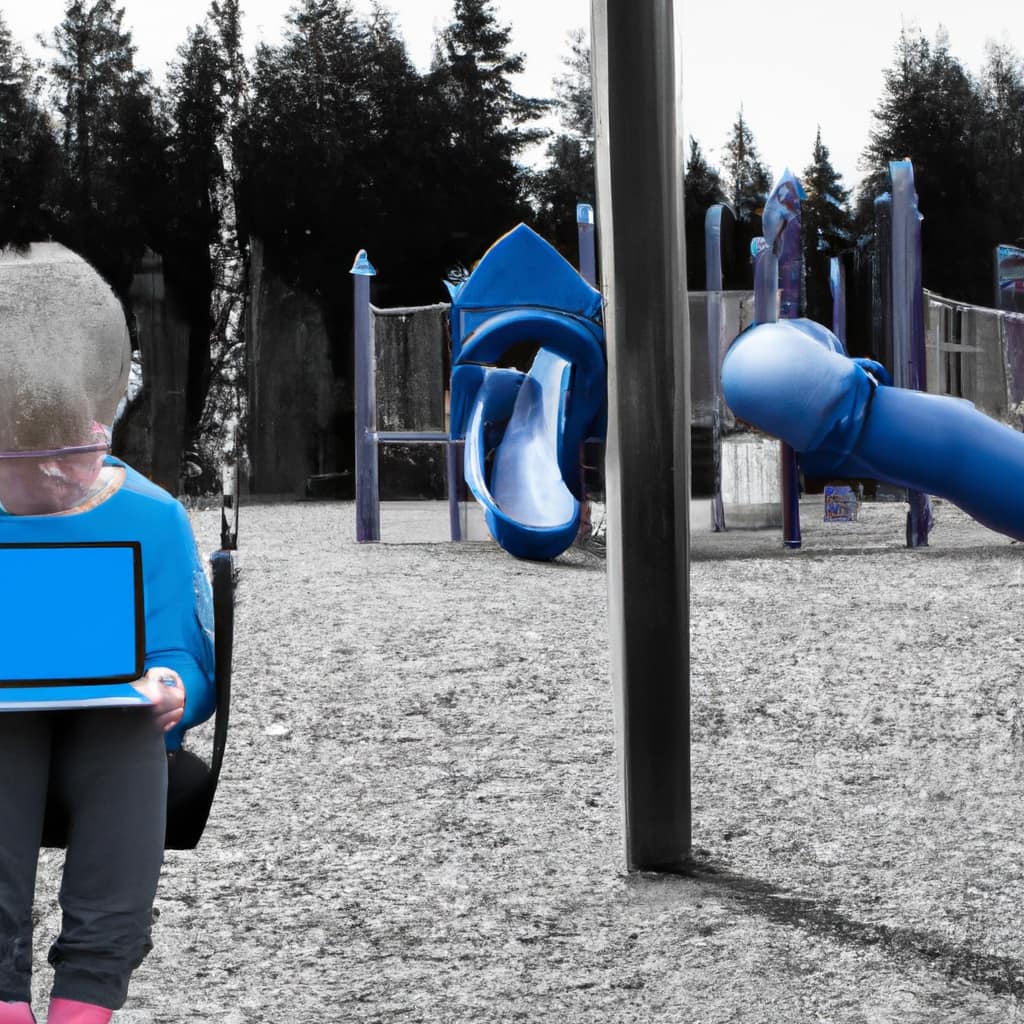
Educational toys that facilitate imaginative play provide opportunities for children to express themselves, develop their own ideas, and embrace their unique capabilities. As they embark on imaginative adventures, children learn to think outside the box, adapt to new situations, and nurture their creativity, paving the way for future innovation and success.
Problem Solving Skills Improvement
Educational toys enhance our ability to solve problems, fostering critical thinking and cognitive skills in children. Through engaging with these toys, children develop the skills necessary to analyze situations, think critically, and find solutions. Here are four ways in which educational toys can improve problem-solving skills:
- Encouraging critical thinking: Toys that require children to think logically and apply analytical reasoning help them develop a critical mindset.
- Promoting creativity: Educational toys that allow children to explore different possibilities and come up with innovative solutions enhance their problem-solving abilities.
- Enhancing decision-making skills: Toys that present children with choices and consequences help them practice decision-making skills, enabling them to make informed choices in real-life situations.
- Developing perseverance: Educational toys that present challenges and require children to persist in finding solutions teach them the importance of perseverance and resilience.
By developing these problem-solving skills, children are better prepared to tackle challenges and navigate the complexities of the world.
Transitioning to the next section, the development of problem-solving skills also contributes to a child’s social and emotional development.

Social and Emotional Development
As we delve into the topic of child development, it is important to explore how educational toys contribute to the social and emotional growth of children. Educational toys play a vital role in fostering empathy building and communication skills development in young ones.
Empathy building is a crucial aspect of social and emotional development. Educational toys that encourage role-playing, such as dollhouses or pretend play sets, provide opportunities for children to step into different roles and understand the perspectives of others. Through these experiences, children learn to recognize and respond to the feelings and needs of others, developing their empathy.
Communication skills development is also enhanced through educational toys. Toys that involve storytelling, such as puppets or storybooks, encourage children to express themselves verbally and engage in conversations. These interactions help children develop their language skills, learn to articulate their thoughts and feelings, and understand the importance of effective communication.
| Educational Toys for Social and Emotional Development | |
|---|---|
| Empathy Building | Communication Skills Development |
| Role-playing toys | Storytelling toys |
| Dollhouses, pretend play sets | Puppets, storybooks |
Educational toys provide a stimulating and enjoyable way for children to develop their social and emotional skills. By incorporating these toys into a child’s playtime, we can support their growth in empathy and communication, laying a strong foundation for their overall development.
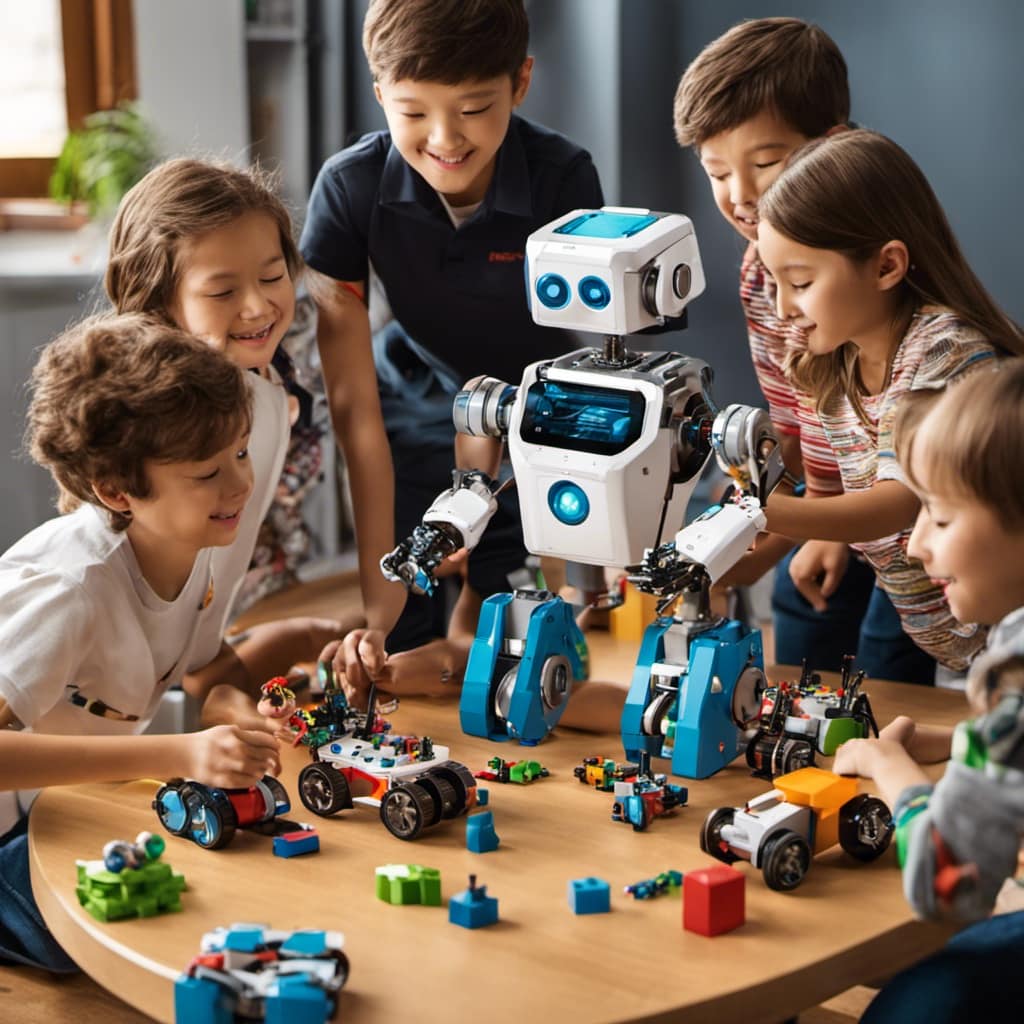
Frequently Asked Questions
Are There Any Specific Educational Toys That Are Particularly Effective for Enhancing Cognitive Development in Children?
Specific educational toys, such as puzzles and building blocks, can greatly enhance cognitive development in children. Playing with these toys alone fosters independent thinking and creativity, providing countless benefits for their overall growth.
How Can Educational Toys Specifically Target and Enhance Motor Skills in Children?
Educational toys can specifically target and enhance motor skills in children. Sensory toys provide benefits for motor development, while fine motor toys play a role in enhancing dexterity skills.
Can Playing With Educational Toys Alone Stimulate a Child’s Imagination and Creativity, or Is It Better to Play With Other Children?
Playing with educational toys alone can stimulate a child’s imagination and creativity. However, playing with other children also offers the benefits of cooperative play, social interaction, and the opportunity to learn from each other’s perspectives.
Do Educational Toys Really Help Improve Problem-Solving Skills, and if So, What Are Some Examples of Toys That Can Aid in This Development?
Using educational toys can greatly enhance problem-solving skills in children. Examples include puzzles, building blocks, and coding toys. These toys engage their minds, promote critical thinking, and help them develop important cognitive abilities.
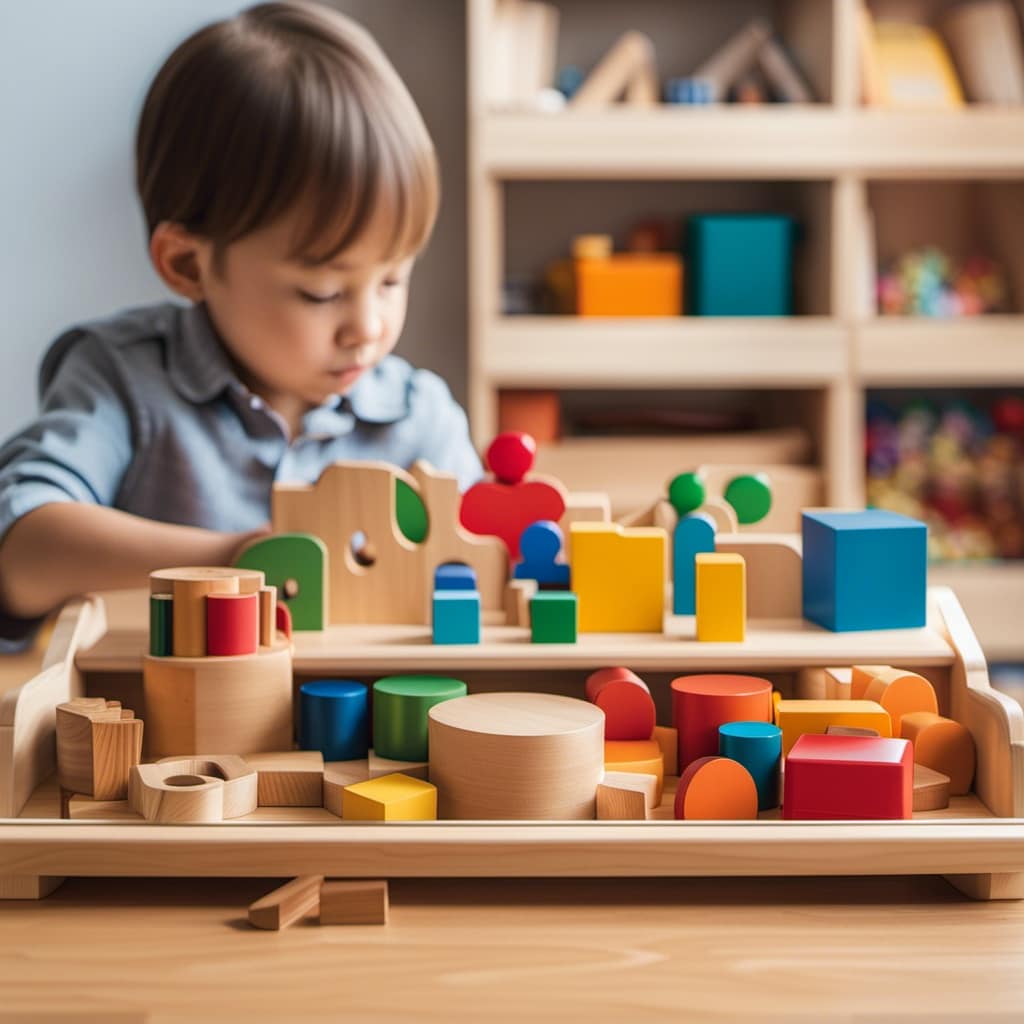
How Can Educational Toys Contribute to a Child’s Social and Emotional Development, and Are There Any Specific Types of Toys That Are Recommended for This Purpose?
Role playing toys can greatly impact a child’s social skills by encouraging imaginative play and promoting cooperation. Construction toys, on the other hand, foster problem-solving abilities through hands-on exploration and creativity.
Conclusion
In conclusion, educational toys are essential for a child’s holistic development. They foster cognitive growth, enhance motor skills, boost imagination and creativity, improve problem-solving abilities, and promote social and emotional development.
These toys provide a fun and interactive way for children to learn and explore, while also honing their skills and abilities.
So, let’s ensure that every child has access to these valuable tools that can shape their future success!
